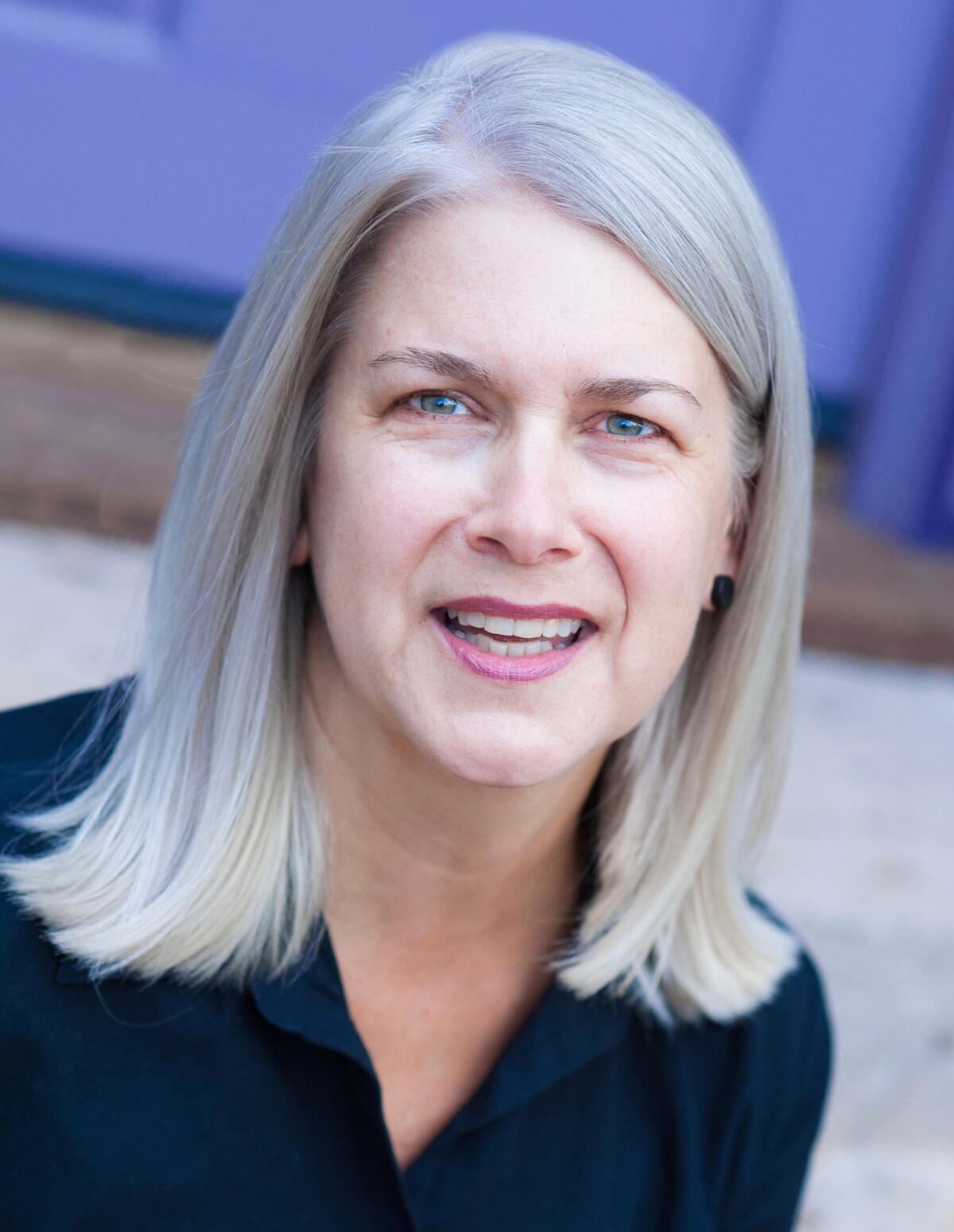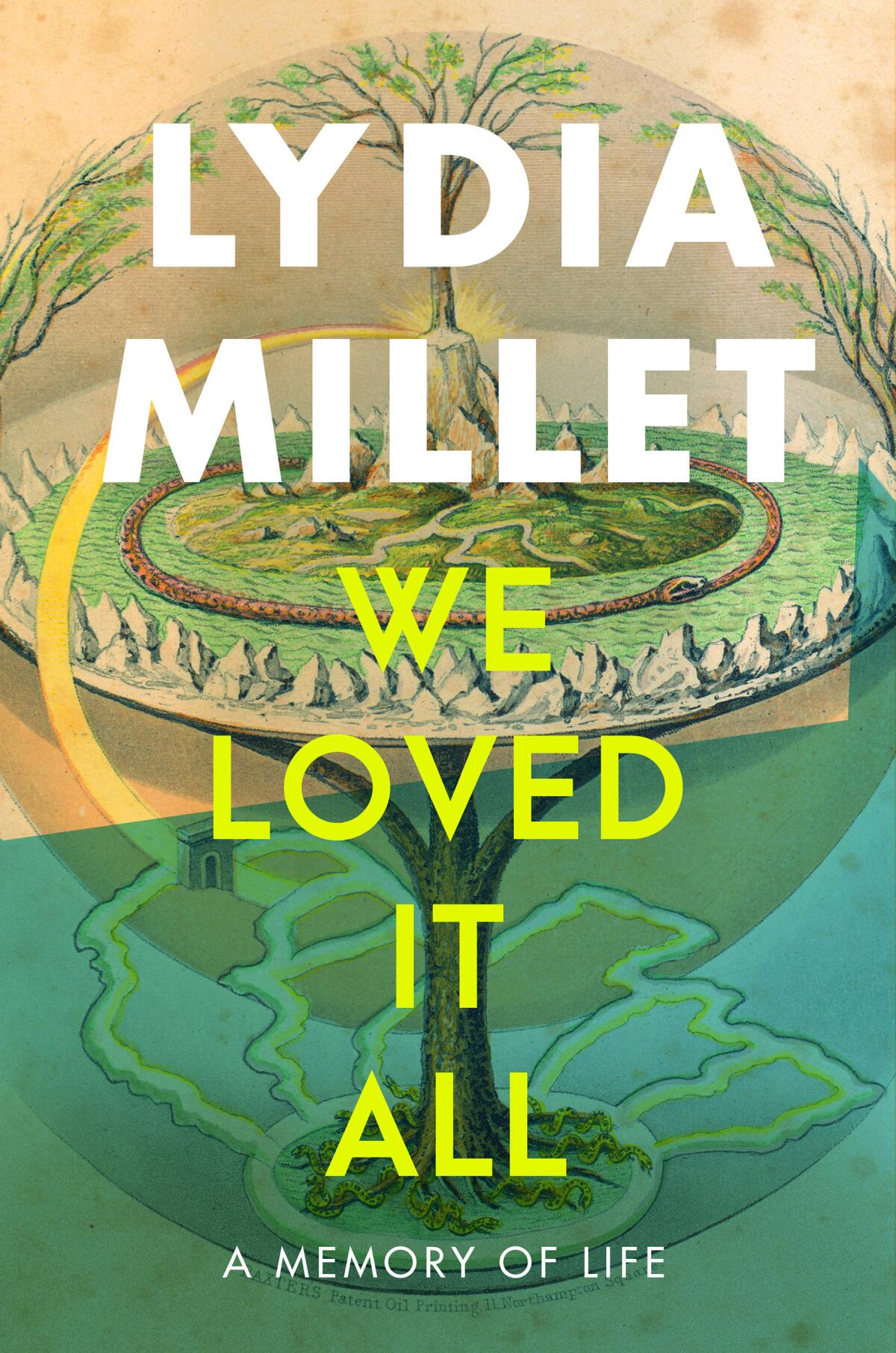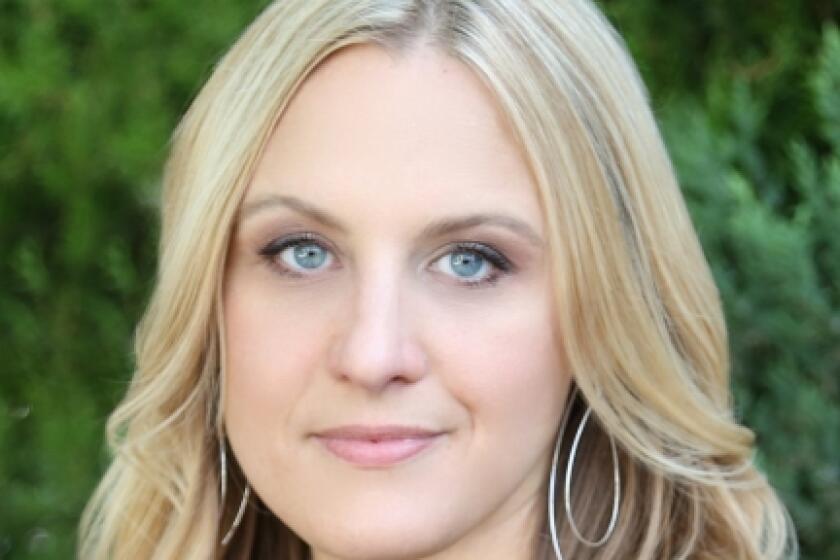Storytellers can inspire climate action without killing hope

- Share via
Book Review
We Loved It All: A Memory of Life
By Lydia Millet
W.W. Norton & Company: 272 pages, $27.99
If you buy books linked on our site, The Times may earn a commission from Bookshop.org, whose fees support independent bookstores.
“We Loved It All” is Lydia Millet’s “anti-memoir.” In previous interviews, Millet has rejected memoir in its traditional form for its emphasis on a single person and their overcoming of obstacles as individual achievement. Preferring to situate each of us in relation to the amalgam of culture, environment and social structures that contain us, Millet emphasizes her role as observer in pointing to our environmental future.
For the record:
10:11 a.m. March 28, 2024An earlier version of this article incorrectly referred to a past book by Lydia Millet as “The Children’s Bible.” Its title is “A Children’s Bible.” The earlier version also incorrectly stated Millet recounted that she had been exposed to the pesticide paraquat and that it had killed off birds on a family farm.
Memoirs steeped in the natural world have tended toward personal experiences — both sensory and situational — that lead to conclusions about “nature” and “human.” Passages full of observational descriptions invite the reader to partake in the experience of reverence or grief inspired by majestic views or environmental devastation and, having done so, to attain a new understanding of the world. Those types of descriptions are absent here, although there are scenes of great poignancy, especially when Millet writes of endlings — animals that are the last of their species — and describes the mostly destructive results of human relationships to animals.

In previous work, Millet has wielded her masterful voice in minimalist, subtle prose. Those talents shone especially in her critically acclaimed climate novel, “A Children’s Bible,” in which middle-class adults facing the climate crisis drink and party and stew about the end of the world, while their horrified children work to create a new path forward through the mess they’ve inherited. It was a scathing indictment of the “woe is me, I can’t do anything” approach to confronting current reality.
Are utopias becoming a trend in fiction during this dystopian era? The debut novel from Phillip B. Williams, ‘Ours,’ embraces magic without ignoring reality.
Counter to that attitude, “We Loved It All” seems to be addressed to a particular audience with the hope of inspiring collective action. Writing in the first-person plural, Millet implicates a collective “we” in her cataloging of all the creatures being lost as humans destroy Earth. In that way, it’s effective: To be reminded of those animals that have gone extinct in the past 50 years inspires a desire to veer immediately from this destructive path.
But in writing about climate change, Millet’s use of the “we” voice creates a chafing tension in the reader, a sense that Millet is addressing the hapless adults she skewered in “A Children’s Bible.” You can feel her contempt for them.
“In some of the circles I moved in, among biologists and atmospheric scientists and environmentalists, the climate and extinction crises were a source of primal fear — factual givens that overwhelmed us in their demand for a political response. But in other circles ... media and publishing and Hollywood, they retained the quality of a boutique interest. As though the fearful belonged to an obscure affinity group or a collection of hobbyists.”
Leaving Christian evangelicalism means sacrificing community and the security of ‘answers’ to life’s vexing questions. There are few smooth landings.
That desire to say “I told you this was going to happen” is a natural impulse for anyone who has lived through previous events and recognized where they were going; I don’t fault Millet for having those moments. It did make me wonder whether she might have been better served by using second person: She might have been tempted to shake a finger at “you people.” Her choice to use “we” throughout most of her book becomes problematic when it collectivizes a history that has played out differently for disparate Americans.
Environmental issues in the Western U.S., where debates over extractive industries, water rights and land use have raged for decades, created much different experiences for its residents than those in the East — where she grew up — whose reckoning with environmental choices played out in lands long colonized. Also underexplored in “We Loved It All” are issues wrought by class and race.
Millet mentions scholars whose work has influenced her thinking but does not feature other voices — those of the various native tribes in Arizona where she lives — or the ways that climate change and pollution are disproportionately affecting the working class and poor who don’t possess the means to mitigate their circumstances. While recalling a childhood spent on her grandfather’s peach farm, she mentions her uncle’s paternal attitudes toward “his” workers, whom he sees as unable to look after themselves.
Yet the book shines during Millet’s brilliant discussions of the limits of language, especially as it functions as a means of provoking empathy and inspiring action. There are tremendous passages about the role of storytellers in bringing about change. How can storytellers inspire action without killing any hope that such actions will mean anything? “Climate doomsaying, like the invocation of personal responsibility as a substitute for structural transformation, can feel like a psy-ops of despair. Encouraging apathy. In fact hope and fear run alongside each other, indivisible. And fear and despair are not equivalent.”
But a lot of distancing takes place through much of the first two sections of the memoir. Millet picks topics up only to drop them as they raise difficult questions she’s unwilling, or unable, to engage with. Early passages often end in clever kickers that are entertaining, but her ironic cynicism is the opposite of the earnest activism she hopes to inspire. She eschews traditional forms of direct action — street protests, for example — but offers few alternatives.
In another place, she dismisses such legal solutions as declaring rivers to be legal individuals deserving of protection, despite the effectiveness of policies that would result, such as dismantling dams and rewilding habitats. The reasons for these choices only begin to make sense when Millet gets to the part of the memoir where she retakes the role of the storyteller and reveals circumstances in which she was raised, including her strong fear of conflict.
“We Loved It All” soars in this third section, which draws its title, “Ring the Bells,” from the Leonard Cohen lyric that reminds us that moments of brokenness are how “the light gets in.” Detachment was prized in Millet’s family, one that emphasized genteel civility and avoided conflict at all costs. These family values reminded me of those in many well-meaning white liberal communities, where risk avoidance leads to platitudes and slogans rather than doing the hard work of change.
But Millet’s dilemma is shared by many storytellers, who often function as bystanders reporting on what they observe. In journalism, strict lines are drawn between being an “objective” journalist and taking part in what’s being reported on, as if the accumulation of facts and details never persuades the writer of the difference between right and wrong. Millet — a staff member with the Center for Biological Diversity — walks the walk in her environmental work, which she does not detail in this book, thus separating it from her position as storyteller.
The reality is that Earth will adapt and change as the climate changes. The crisis is for us, the animals and human beings who will not survive the warming of the oceans, the desertification of the land and the destruction wrought by rising sea levels and constant fire.
It’s a collective problem that will require collective solutions. One individual cannot provide us all with a miracle. Millet acknowledges all of this, providing instead a general survey of the issues that confront us. But “We Loved It All” feels like the experience of driving lost and running into a local familiar with the terrain. You ask for directions, only to be told, “You can’t get there from here.”
Lorraine Berry is a writer and critic in Eugene, Ore. @BerryFLW
More to Read
A cure for the common opinion
Get thought-provoking perspectives with our weekly newsletter.
You may occasionally receive promotional content from the Los Angeles Times.











